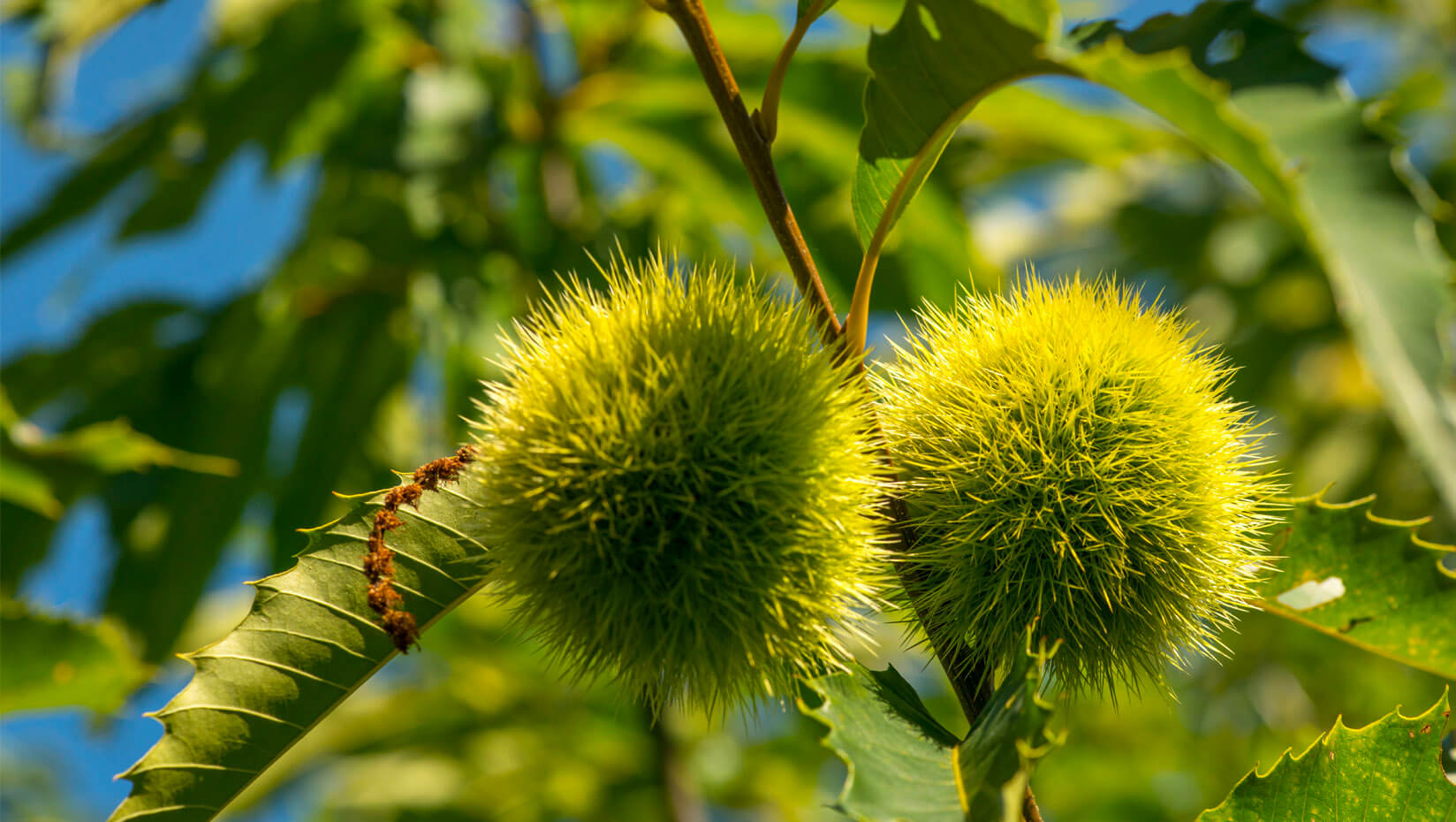
Tan, colleagues plant American chestnuts to return ‘perfect tree’ to ecosystem
For generations, majestic American chestnut trees flourished and provided food and wood for people from Maine to Florida.
These 100-foot “redwoods of the East” were called perfect trees. They grew fast and produced nutritious chestnuts for people and animals. And their straight-grained and rot-resistant wood was ideal for building houses and barns and crafting furniture.
But in the late 1890s, a fungus arrived on imported blight-resistant ornamental Chinese chestnut trees. And over the next 40 years, the fungus wiped out nearly 4 billion of the heritage trees.
University of Maine faculty and students are working to return these iconic trees to the ecosystem. To do so, they’re collaborating with colleagues at Unity College and the University of New England as well as members of the Orono and Sebasticook Regional land trusts and The American Chestnut Foundation (TACF).
This spring, they’ll help plant 200 diverse wild American chestnut trees (Castanea dentata) in plots in Maine. They will be the basis of an orchard that maintains genetic diversity of the species for future use.
At UMaine, E. Han Tan, assistant professor of plant genetics, is working with Jay Wason, assistant professor of forest ecosystem physiology; Kathryn “Kat” Klebon, biology major and former intern with the Maine Chapter of The American Chestnut Foundation; and Katie Tims, a biology major and Honors College student concentrating in pre-medical studies and minoring in sustainable food systems.
They’re teaming with Matthew Chatfield, Unity College associate professor of conservation biology; and Thomas Klak, University of New England professor of environmental studies.
Klebon, who marvels at the leaves shaped like canoes and spiny burs the color of tennis balls, says it’s satisfying to try to rectify this human-caused ecological disaster.
The team is eagerly awaiting the U.S. Department of Agriculture’s decision on whether to deregulate a transgenic OxO chestnut that could help restore the species.
Scientists at the State University of New York College of Environmental Science and Forestry (SUNY-ESF), in collaboration with the New York Chapter of The American Chestnut Foundation, have successfully transferred a gene from wheat — oxalate oxidase (OxO) — to American chestnuts to make them blight-resistant.
Multiple tests have found the transgenic OxO chestnut doesn’t result in any significant ecological effects, other than enhancing blight tolerance. Nor does it have any negative effects on human health; the wheat gene already exists naturally in a number of food crops.
At UNE, Klak and students are speed-breeding American chestnuts with the wheat gene. While it can take years for American chestnuts to reach sexual maturity in a forest, the UNE lab has reduced that time to nine months. Klak and students are collecting and freezing pollen in the lab to use under a USDA permit while waiting for the deregulation of transgenic OxO chestnut trees.
Tims became more intrigued about genetic engineering and its potential to restore the species after learning about the traumatic story of American chestnuts in Tan’s genetics class.
“We could see a major milestone for the worlds of biotechnology and ecology restoration efforts,” she says.
Tan says returning the American chestnut tree to the Appalachian hardwood forest ecosystem “could be the first success story to restore a functionally extinct species.”
Chatfield says the initiative will require citizen science on a scale not commonly seen. “At some point in the not-too-distant future, we’ll be requesting that others help plant chestnuts to restore the species to the wild,” he says.
The effort also brings attention to the value of other tree species and encourages people to be stewards of the forest, says Wason.
If all goes well, it could be 50 to 200 years before people again walk in the shade of American chestnuts. Wason says that time frame isn’t a deterrent. “We want to start the ball rolling.”
Contact: Beth Staples, beth.staples@maine.edu
